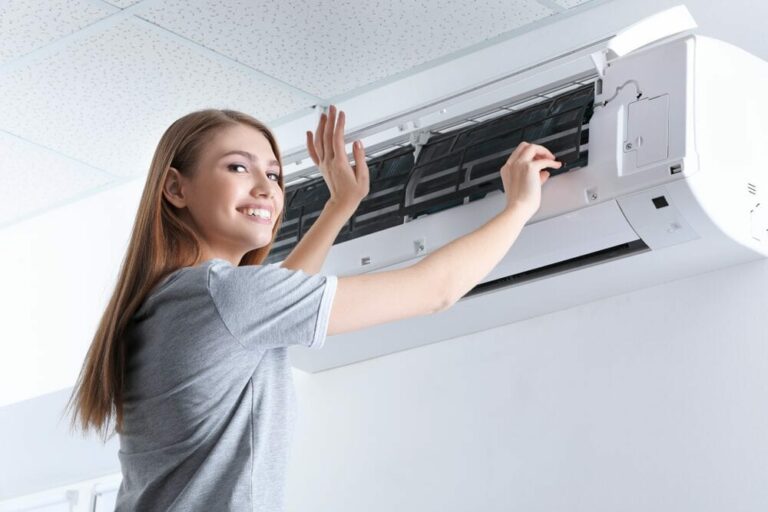
Smart technology is revolutionizing various industries, and HVAC systems are no exception. For commercial buildings in Florida, where maintaining a comfortable indoor environment is critical, integrating smart technology into HVAC systems offers numerous benefits. Here’s how smart technology is transforming modern commercial HVAC systems and why it matters for businesses:
Enhanced Energy Efficiency
Smart HVAC systems use advanced algorithms and real-time data to optimize energy use:
- Adaptive Controls: These systems adjust heating and cooling based on occupancy and weather patterns, reducing energy waste.
- Predictive Maintenance: Smart sensors monitor system performance and predict when maintenance is needed, preventing energy losses from inefficient operation.
- Zoning Capabilities: Smart thermostats allow for precise temperature control in different areas, ensuring energy is only used where and when it’s needed.
Improved Comfort and Air Quality
Smart technology enhances indoor comfort and air quality, crucial for employee productivity and customer satisfaction:
- Precision Temperature Control: Smart thermostats provide consistent and accurate temperature management, eliminating hot or cold spots.
- Air Quality Monitoring: Sensors can detect pollutants and adjust ventilation to maintain healthy indoor air quality.
- Humidity Control: Smart systems can monitor and control humidity levels, essential in Florida’s humid climate to prevent mold growth and maintain comfort.
Cost Savings
Implementing smart technology in HVAC systems can lead to significant cost savings:
- Lower Energy Bills: By optimizing energy use, businesses can reduce their utility bills significantly.
- Reduced Maintenance Costs: Predictive maintenance minimizes the need for emergency repairs and extends the lifespan of HVAC equipment.
- Efficiency Rebates: Many utilities offer rebates for businesses that install energy-efficient HVAC systems, providing additional financial incentives.
Remote Monitoring and Control
Smart HVAC systems offer the convenience of remote monitoring and control, which is particularly beneficial for businesses with multiple locations:
- Mobile Apps: Facility managers can monitor and adjust settings from anywhere using smartphones or tablets.
- Centralized Control: Systems can be controlled from a central location, streamlining management for large properties or multi-site businesses.
- Real-Time Alerts: Immediate notifications about system issues allow for quick response, reducing downtime and maintaining comfort.
Data-Driven Decision Making
Smart HVAC systems generate valuable data that can inform decision-making and improve operational efficiency:
- Usage Analytics: Detailed reports on energy use help identify trends and opportunities for further efficiency improvements.
- Performance Metrics: Continuous monitoring provides insights into system performance, helping to optimize settings and schedules.
- Historical Data: Analyzing past performance data can inform future upgrades and replacements, ensuring the most effective solutions are implemented.
Environmental Impact
Smart HVAC systems contribute to sustainability efforts by reducing energy consumption and greenhouse gas emissions:
- Green Building Certifications: Implementing smart HVAC technology can help businesses achieve certifications like LEED, enhancing their environmental credentials.
- Reduced Carbon Footprint: Efficient energy use lowers the overall carbon footprint of commercial buildings.
- Compliance with Regulations: Smart systems can help businesses stay compliant with local energy efficiency regulations and standards.
Scalability and Flexibility
Smart HVAC systems offer scalability and flexibility, accommodating the evolving needs of businesses:
- Modular Design: Systems can be expanded or modified as business needs change, without requiring a complete overhaul.
- Customizable Settings: Different areas of a commercial building can be customized to meet specific needs, from office spaces to manufacturing areas.
- Future-Proofing: Investing in smart technology ensures that HVAC systems remain compatible with future advancements and innovations.
Conclusion
The integration of smart technology in modern commercial HVAC systems is transforming how businesses manage indoor climate control. From enhanced energy efficiency and cost savings to improved comfort and air quality, the benefits are substantial. For businesses in Florida, where maintaining a comfortable environment is crucial, investing in smart HVAC solutions can lead to significant operational improvements and financial gains. Embrace the future of HVAC technology to optimize your building’s performance and ensure a comfortable, efficient, and sustainable operation.